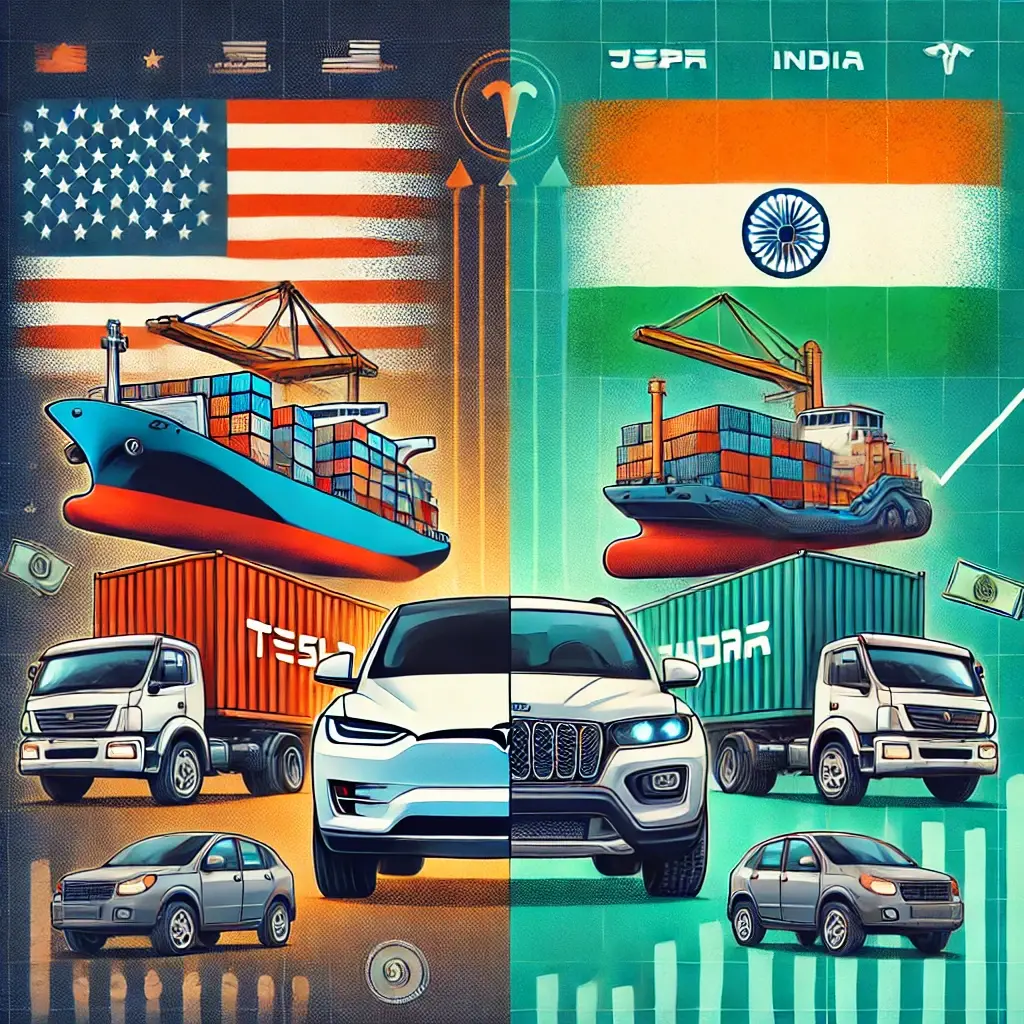
In a significant development in U.S.-India trade negotiations, the United States is reportedly pushing for zero tariffs on car imports as part of a broader trade agreement. Sources suggest that Washington aims to secure minimal to zero tariffs across most sectors, with agriculture being a notable exception. However, India remains hesitant to immediately slash automobile import duties to zero, though it is considering gradual reductions.
U.S. Demand for Zero Tariffs
According to sources cited by Reuters, the U.S. is advocating for reduced or eliminated tariffs on several sectors, including automobiles. The goal is to enhance market access for American car manufacturers in India, one of the world's largest automotive markets. This move aligns with Washington's broader trade strategy, which seeks to eliminate barriers in key international markets while keeping exceptions in sensitive sectors such as agriculture.
India's Response and Considerations
The Indian government has expressed reluctance to immediately reduce auto tariffs to zero but is open to further cuts. In February, officials reportedly engaged in discussions with domestic automakers to assess the potential impact of tariff reductions. Indian automakers have long benefited from high import duties, which protect domestic players from foreign competition. Lowering these tariffs could reshape the industry by increasing competition from global brands.
Potential Implications
1)If India agrees to the proposed tariff reductions, it could lead to:
2)Increased competition in the Indian automobile sector.
3)Greater choices for Indian consumers with access to international car brands at competitive prices.
4)Challenges for domestic automakers, who may face pricing pressure.
5)Strengthened U.S.-India trade ties, potentially leading to further negotiations in other sectors.
On the other hand, India’s caution reflects concerns about its local manufacturing industry and employment, which could be affected if tariffs are eliminated too quickly.
While the U.S. is pushing for zero tariffs on car imports, India is taking a cautious approach to protect its domestic auto industry. The ongoing discussions will likely determine the future of U.S.-India trade relations in the automotive sector. With both nations having strategic economic interests, the final outcome of these negotiations remains uncertain.
Disclaimer
The information provided in this article is based on sources reported by Reuters and other media outlets. While efforts have been made to ensure accuracy, readers are advised to refer to official government statements and verified sources for the latest updates on trade negotiations. Sensexnifty.com is not responsible for any inaccuracies or changes in information.




